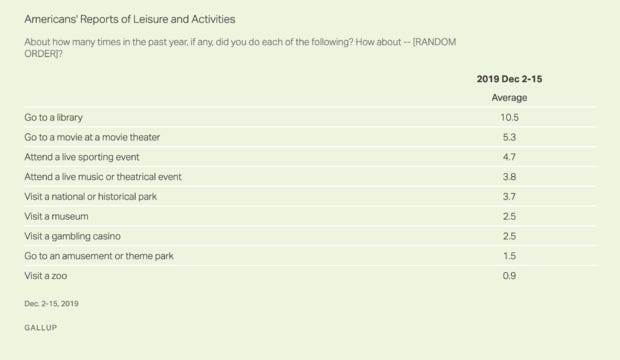European Theatre vs American Theatre
In which I grapple with the good and bad of Ivo Van Hove and Simon Stone.
Hi friends,
Welcome to The Curtain, a weekly newsletter exploring theatre, culture, media, and the future. It’s written by me, Gus Cuddy.
If you’ve been forwarded this email, you can sign up for yourself here:

A few years ago, Broadway was struck by Ivo Van Hove fever. Despite having directed productions at New York Theatre Workshop since the mid-90s, van Hove's production of A View from the Bridge broke out when it hit Broadway in 2015, following a successful run on the West End. Ben Brantley called it "what Greek tragedy once felt like". The popularity of van Hove skyrocketed. There was a feature in The New Yorker on him that featured words like "elemental" and "raw", and many articles praised his edgy, auteur vision. Soon after he was tasked by producer Scott Rudin to direct a version of The Crucible on Broadway starring Saiorse Ronan (a product of the algorithmic-type producing Rudin does, which I call The Scott Rudin Problem). Van Hove won the Tony Award in 2016 for Best Director for View, and his status as the Sexy Broadway Director Of The Moment was cemented, a quick rise to power for the Belgian-born, Amsterdam-based director. In 2018, van Hove's production of Network with Bryan Cranston premiered on Broadway. And in just nine days, van Hove's production of West Side Story will open.
A View from the Bridge offered something relatively accessible for Broadway audiences, allowing us to dip our toes in the avant-garde waters while remaining in grounded territory. The production was exhilarating: more Ancient Greek drama than naturalistic Arthur Miller, which felt exciting. Sure, there were dissenters—some with uncool complaints about the aesthetic changes to our expected version of an Arthur Miller play, and others with valid complaints about the flattening out of Italian-American culture. But for the most part, Ivo was embraced as a necessary breath of fresh air for the suffocating blandness of the American theatre landscape. For some of us, Ivo's work (starting for me with 2014's brilliant Scenes from a Marriage at NYTW) represented a paradigm shift in what theatre could be. Van Hove was an architect of energy in three-dimensional space. Working closely with his life partner and designer Jan Versweyveld to construct worlds of set, costume, light, video, and music (all his rehearsals start on day one with full tech), van Hove would create stunning visceral action and images that got at something essential. The ending of his Angels in America was the Angel spinning and throwing Prior to the ground repeatedly; the metaphor of the trauma of AIDs being a body being thrown down over and over was a more powerful image for some than a literal stage representation could ever be—a window into a brutal inner world. (Though, to be clear, Kushner's original ending is not literal either!) Kushner approved. In Rebecca Mead's New Yorker profile on van Hove, she writes that "Kushner says that one of van Hove’s gifts is to 'make the audience confront the failure to create completely convincing illusions—and the power of the theatre is that failure to create convincing illusions.'"
Theatre is a medium of metaphor, and literalism can be one of its great enemies. By allowing space for the invisible to emerge, theatre audience members can participate in the drama, letting their unconscious—and whatever that might bring—do part of the work. Peter Brook wrote about this in The Empty Space—Van Hove's work is nothing truly new, but it did seem to unlock something in American culture. His work honored the event-ritual of theatre, but most importantly, unlike so much contemporary theatre, it felt alive.
But it's 2020 now. Attitudes have shifted a bit on Ivo and the nature of European White Men directing Euro-chic theatre. And he's not quite the theatrical darling he once was—or at least, not in the same way. Personally, I have grappled with the problematic aspects of Ivo's work and attempted to reckon with them; I still enjoy him as a director, while also accepting the problems and complexities he poses. But things that I could naively brush off a few years ago land a bit harder now. For one, his upcoming West Side Story, of course, features a performer who was fired from the New York City Ballet for sexual misconduct (and then re-hired). And Van Hove's acting ensemble at his theatre, the International Theatre of Amsterdam (ITA), is pretty much entirely white, as far as I can tell. This is the same ensemble he has been working with for decades and, to be fair, they are one of the best in the world. (Hans Kesting for life!) But this lack of diversity can't really be ignored anymore. And the same is unfortunately true with their current directors. That means that his seminal Angels in America production had white men playing Belize and the Angel, and his Othello had a white actor playing Othello. It's easy for van Hove to take a position of not seeing race, but this doesn't really fly anymore. What this model of European theatre offers is a two-dimensionalization of culture and race that, in America today, feels regressive. European white men inflicting their whitewashed vision onto a text can't help but give off a whiff of colonialism.
The tides are slightly turning against this kind of European theatre in America, though. Simon Stone's Medea, which was a critical hit in Amsterdam (at ITA) and London, was met with lackluster reviews in New York at BAM. Stone was clearly influenced by the van Hove aesthetic (though he does work very differently), and what once felt fresh a mere few years ago now feels a bit stale and played out. Stone's Yerma was so exhilarating in a madcap way—and featured such a great performance from Billie Piper—that we could ignore some of its implausibilities, and even gloss over the complexity of the cultural implications of adapting Lorca, or the thinness of the main character. (After all, it passed the biggest test of a revival: it actually did revive, and felt alive.) But Medea isn't quite there. As Helen Shaw points out in her review, the play just isn't as strong, and Rose Byrne just isn't as "distractingly good". But more than that, Shaw (and she isn't alone) sees some hidden problematic misogyny in Stone's rewriting of tragic women gone mad.
At the very least we have to acknowledge that maybe these productions are hiding or ignoring some complexities that they don't want to face, masked by minimalist designs. It's the same problem of minimalism I wrote about recently—there is something about the cleanness that can rub us the wrong way, now, knowing that there's way more complexity than meets the eye. In a funny way, European theatre—which is constantly hailed as being more "progressive"—is in a lot of ways behind new American playmaking. Sure, Berlin is doing weirder shit that is often more exciting, and certainly way more accessible. (And I confess I don't know a ton about non-English language theatre.) But our recent crop of playwrights in America have not only been excellent, but often dive head-first into the entanglement that some of these other productions ignore. (ITA, as a director's theatre, doesn't produce any new plays at all, only revivals.) In 2020, we want messiness and complexity, not flattened simplicity; I'll take the discomfort in Strange Loop or Heroes of the Fourth Turning over the clean, aesthetic lines of Medea. The mess of ideas, styles, and emotions is uniquely American; when we ignore them, we prioritize aesthetics over reality, the conscious over the unconscious.
American directors are not immune, either. Sam Gold's Glass Menagerie from a few years ago suffered from a contextless-ness problem, for instance. And while Daniel Fish's recent hit Broadway production of Oklahoma checked a lot of boxes for me in flipping the play's subtext on its head and diving into the entanglement, I don't know that it completely got there—its ending proved to be problematic and confusing for some. When can we have New York producers trust directors other than white men to be "auteur" directors? Hopefully soon; with Parasite's recent Oscar win, theatre is lagging behind in this regard. It's not for lack of great talent—I can count so many—but only for fear of giving up the white patriarchal throne that theaters tend to only trust white male directors to mess with a text. For now, we'll have to rely on the stream of amazing playwrights in America to continue to create explosive work that, in maximally pursuing the complexity of being American, lifts itself above the pitfalls of aestheticized minimalist theatre.
Notes from the Week
What Parasite's Win Means: E. Alex Jung's profile of Bong Joon-Ho is excellent. Did the win mean anything? Yes. But also, no?
How to Write Fiction When the Planet Is Falling Apart. An absolutely beautiful profile by Parul Sehgal of Jenny Offill. I think it's a must-read for creatives.
The Bus is Underrated. Loved this episode of 99% invisible.
The best award speeches—Safdie Bros and Adam Sandler at Independent Spirit Awards:




I Don't Want to Be the Strong Female Lead. A terrific piece by Brit Marling on the problem with the "strong female lead" and why Hollywood is obsessed with the hyper-masculine "Hero's Journey".
More Americans go to the library than the cinema?

Kyle Chayka on Kim Kardashian's House:"In other words, minimalism presents the illusion of intellectual simplicity — morally good, anti-consumerist — while being just as complicit in the problems of capitalism as anything else."
End Note
That’s all for this week—thanks so much for reading!
If you enjoyed this, please consider forwarding it to a friend or two.
You can access the entire archive here.
As always, you can reply directly to this email and I’ll receive it. So feel free to do that about anything. You can also reach me at my personal email: gus.cuddy@gmail.com.
See you next week!
-Gus



